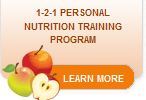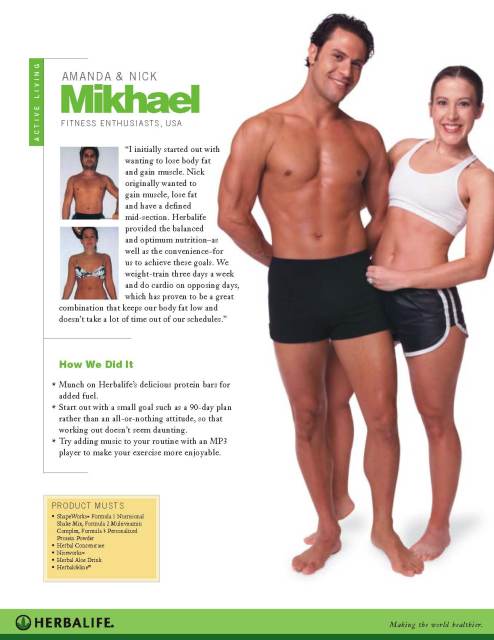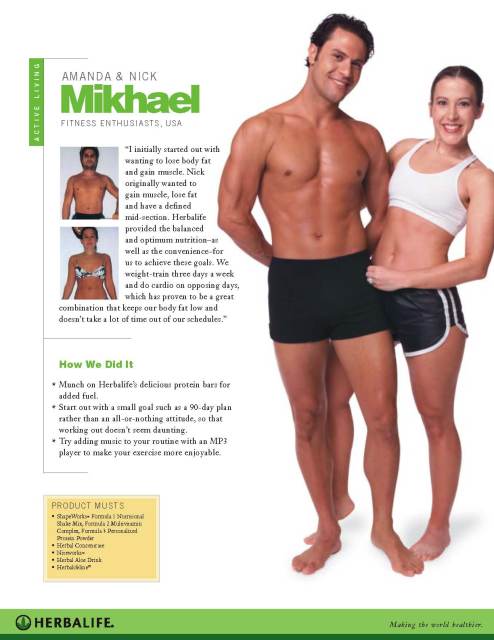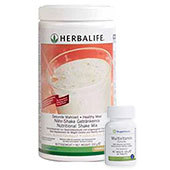Healthy Foods??
Question
All politics aside, what are the healthiest foods to eat? What is the most up to date, scientifically proven, and generally accepted ideal diet for someone not trying to lose weight? Is meat healthy or is it not?
Dear Jonathan,
Tough questions! There are so many opinions out there, most of which have a major agenda behind them as you suggested. The fact is, there is no single ideal diet. Everyone has different nutritional needs, and the best diet for one person may not be the healthiest option for another. To create the ideal diet for you, without weight loss as a goal, here are some general principles that I believe are politics-free and based on the best info out there.
1. Emphasize plant-based foods in your diet. This means tons of veggies, lots of whole grains, and plenty of fruits. Beans, lentils, and legumes in general are especially healthy ways to get satisfying bulk into your diet when you are focusing on plant-based foods. The bonus of emphasizing plant-based foods is that you get a ton of nutrients and you never have to go hungry, because they are so naturally low in calories. Even better, dozens of very large studies have found a strong connection between populations with plant-based diets and lower rates of many types of diseases--it's terrific for your heart, your circulation, your bowels, and much more. Aim for 1/2 of your dinner plate to be filled with veggies, 1/4 with whole grains, and 1/4 with lean protein--this is the latest recommendation by the USDA, and I think it reflects a good, unbiased balance for people just trying to be healthy. Finally, variety is also essential--aim for different colors and foods to get the best variety of nutrients, antioxidants, and flavors.
2. Meat is good for you--with caveats. Meat provides humans with essential amino acids and certain nutrients that are very difficult to get from an entirely vegetarian diet. Animal products in the diet are recommended for most people--this includes dairy, eggs, meat, poultry, and fish. Studies consistently show a link between high consumption of red meat (beef!) and higher rates of cardiovascular diseases and some other conditions, like colon cancer. Unless you have a dietitian on call to help you regularly get enough iron, vitamin B, and amino acids from veggies, I definitely recommend animal products in the diet, including meat. Supplements and additives can't be used as efficiently and effectively by your body as nutrients from actual food. Consider limiting meat consumption, however, and aim for leaner proteins (skinless chicken, fish, and lean cuts of pork or beef) to reap the health benefits without the risks.
3. I would say the verdict is still out on food additives, pesticides, and genetic modification. Research criticizing the use of chemical insect control, hormone use, pesticides, color additives, etc., is often conflicted and based on small or short-term studies. If you want to be on the cautious side without eliminating 9/10 of your grocery store options, I would skip animal products with hormone (certain meats and dairy) and buy organic for the "dirty dozen" of produce.
4. Whole foods are better than processed and refined foods. This recommendation covers several pretty well-established thoughts on diet--limiting refined carbs and added sodium means better blood sugar and blood pressure, and food that you prep yourself gives you more fiber and nutrients with less unnecessary junk. Processed foods, like potato chips, frozen dinners, canned soups, donut holes, etc., are packed with pretty worthless calories and lots of crap to boot. Likewise, whole foods (an apple instead of apple juice, dried beans you soak instead of canned beans, or a cream sauce you make yourself instead of jarred Alfredo sauce) typically offer better benefits to your body.
5. Calorie intake for weight maintenance is highly variable from person to person, so the typical "2000 for women, 2400 for men" is not very useful. Most women need about 1600 for maintenance, men at least 2000, but this will depend a lot on activity level and your personal metabolism. If you follow the guidelines above, you can pretty much eat as much as you want without worrying about surpassing your calorie limit, especially if you avoid high-calorie and high-fat condiments (mayo, ranch dressing, cheese sauce, etc.). Obviously, people of healthy weight but with certain conditions or concerns (diabetes, IBS, Cystic Fibrosis, etc.) will have different needs and restrictions for reaching their ideal calorie intake. Some of the websites below can offer guidance on calculating your best range.
I hope this helps a bit - sorry I couldn't be more specific, but let me know if there are other questions I could help with.
Thanks!
USDA Food and Nutrition Information Center
Example of a general healthy diet targeted at specific disease prevention (these exist for a wide range of disease you may have a family history of, etc.)
Great place to keep track of the latest nutrition research
- Prev:Protein
- Next:Oatmeal and wheat
Related Articles
-
Can you help me?
QuestionIm looking for the very best quality vitamin at any price
-
vegetable juice
QuestionQUESTION: I have a problem eating enough fresh vegetables
-
Zero Calorie Vitamin Water sweetened with Ace K and Sucralose
QuestionCan a vitamin enhanced zero calorie water beverage sweete
-
About colesterol
QuestionIf a person is a TOTAL, COMPLETE, and ABSOLUTE VEGETARIAN
-
Why cant I loose weight?
QuestionDear Melissa, My name is Althea, I am a 44 years old and
-
weight gain?too much to fast
Questioni am 50 in a week and i have several different issues,i h




